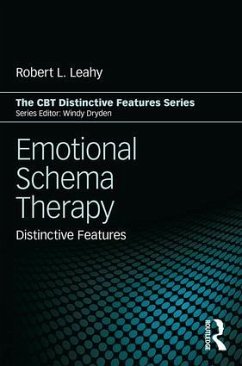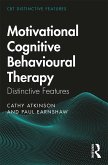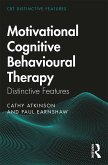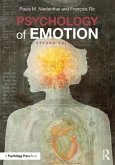Emotional Schema Therapy: Distinctive Features offers a concise overview to what is distinctive about this new approach to helping clients cope with "difficult" emotions. Written by a researcher with many years of clinical experience, it provides an accessible, bitesize overview. Using the popular Distinctive Features format, this book describes 15 theoretical features and 15 practical techniques of Emotional Schema Therapy.
Emotional Schema Therapy will be a valuable source that is written for psychotherapists, clinical, health and counselling psychologists, counsellors, psychiatrists, and all who wish to know more about the role of emotions and emotion regulation.
Emotional Schema Therapy will be a valuable source that is written for psychotherapists, clinical, health and counselling psychologists, counsellors, psychiatrists, and all who wish to know more about the role of emotions and emotion regulation.
Dr. Leahy, one of the leaders of cognitive behavioral therapy, master clinician, and prolific author has yet again enriched the field with Emotional Schema Therapy. This approach targets the way we think about our emotions, evaluate them, and cope with them. Using his rich clinical background, Dr. Leahy's new text will help countless people deal with their emotional distress. It is a must read.
Stefan G. Hofmann, PhD, Professor of Psychology, Boston University, USA
Dr. Leahy presents his latest thinking on his emotional schema theory, a novel and integrated approach to conceptualising and dealing with emotions in therapy. The impact of metacognitive, compassion and cognitive theories is evident in Dr. Leahy's discourse as he sets out new avenues for conceptualisation, research and treatment of the complex emotional life.
Professor Adrian Wells, Faculty of Biology, Medicine and Health, University of Manchester, UK
Dr Leahy's new book will be a valuable and accessible resource for therapists wishing to know more about Emotional Schema Therapy.
Sabine Wilhelm, PhD, Chief of Psychology, Massachusetts General Hospital, Professor, Harvard Medical School
Stefan G. Hofmann, PhD, Professor of Psychology, Boston University, USA
Dr. Leahy presents his latest thinking on his emotional schema theory, a novel and integrated approach to conceptualising and dealing with emotions in therapy. The impact of metacognitive, compassion and cognitive theories is evident in Dr. Leahy's discourse as he sets out new avenues for conceptualisation, research and treatment of the complex emotional life.
Professor Adrian Wells, Faculty of Biology, Medicine and Health, University of Manchester, UK
Dr Leahy's new book will be a valuable and accessible resource for therapists wishing to know more about Emotional Schema Therapy.
Sabine Wilhelm, PhD, Chief of Psychology, Massachusetts General Hospital, Professor, Harvard Medical School








